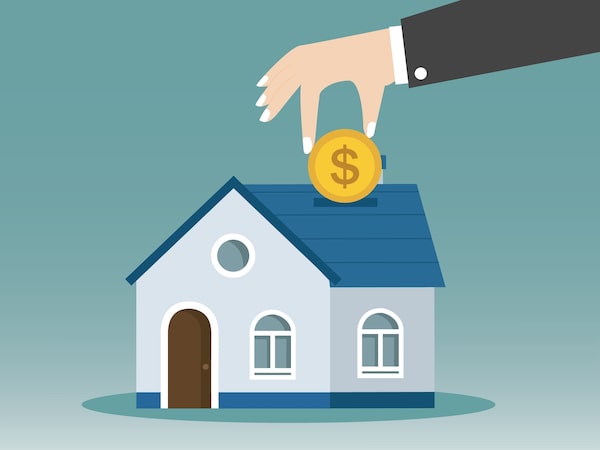
Investment - IllustrationNithirut14/iStockPhoto / Getty Images
If you’re in the trenches shopping for a new mortgage, I’m going to tell you something I’ve rarely told anyone in 13 years in this business: Variable rates are a gamble that you don’t need to take.
There’s little question in my mind that you’ll win for at least a year or two by floating your mortgage rate. But year three is a crap-shoot. And years four and five entail legitimate risk of higher borrowing costs.
The ‘why'
Well, for one thing, the Bank of Canada is swamping our financial market with liquidity. And it’s promised to keep doing that well into next year by buying an array of debt securities, which temporarily suppresses mortgage rates and inspires people to borrow.
On top of that, you’ve got the Finance Department handing out billions of dollars to workers affected by COVID-19.
Many fear all this spending will catch up with us when the economy recovers by driving inflation higher. And even if an inflation spike lasts only a year or two, that may be all that’s needed to help five-year fixed rates outperform.
With the lowest fixed rates now less than seven basis points above the cheapest variable rates, a single rate increase by Bank of Canada in the next 42 months would make a floating rate more expensive based on interest cost alone. (There are 100 basis points in a percentage point.)
How likely are we to see a hike by the central bank in that time frame?
“The short answer is that it is very likely that the Bank of Canada will raise rates at least once in the coming 3.5 years,” Benjamin Tal, deputy chief economist at Canadian Imperial Bank of Commerce, said in an interview. “We have to remember that we are at emergency rates and a reasonable scenario is that the emergency will not last for 3.5 years given the nature [of it].”
Unprecedented stimulus and record-high government debt issuance simply aren’t compatible with zero per cent interest rates in the long term. When our government stops buying bonds, unemployment subsides and consumer demand eclipses precrisis levels, the ceiling on rates goes away.
And when it happens, it happens quickly. Yields can surge by 75 basis points or more seemingly overnight – well, in 30 to 60 days – once traders think inflation is headed back above the central bank’s 2 per cent target.
When that occurs, you’ll want to be in a fixed rate.
Timing is always a factor
For Joe Homeowner, flat to falling yields are good news from a borrowing cost perspective.
Given central bank buying and the uncertain near-term growth outlook, bond yields could easily drop further, taking fixed mortgage rates down with them. The problem is, no one knows for sure if, when or how far they’ll drop.
For those trying to time when to lock in, about the best we can say right now is that fixed rates will stay near or below current levels until the five-year bond yield exceeds 0.6 per cent and stays there. It’s at 0.33 per cent as I write this.
Until then, it’s a waiting game. And with today’s record-low sub-1.99-per-cent five-year fixed rates staring you in the face, you’ve got to ask yourself: How long are you willing to roll the dice and wait to save an additional one-, two- or three-10ths of a percentage point?
The sensible options
If you’re applying for a new mortgage now, have a long-term financing need and an average-to-low risk tolerance, a five-year fixed below 2 per cent has your name all over it. The risk-reward is easily “good enough.”
Of course, with central banks pledging to pin rates near zero for one to two more years, it’s tempting to take a chance on a one-year fixed. They’re priced at 1.59 per cent to 1.99 per cent depending on your home equity.
For financially solid borrowers, a short-term fixed is an understandable play – particularly with economists like Mr. Tal expecting minimal near-term rate risk. “I don’t see the Bank of Canada moving before 2022,” he projects.
But for a typical borrower who plans to keep a mortgage for five full years, today’s best value is a set-and-forget five-year fixed – from a fair-penalty lender in case you break it early – at 1.99 per cent or less.
Robert McLister is a founder of RateSpy.com and intelliMortgage, and mortgage editor at rates.ca. You can follow him on Twitter at @RateSpy.